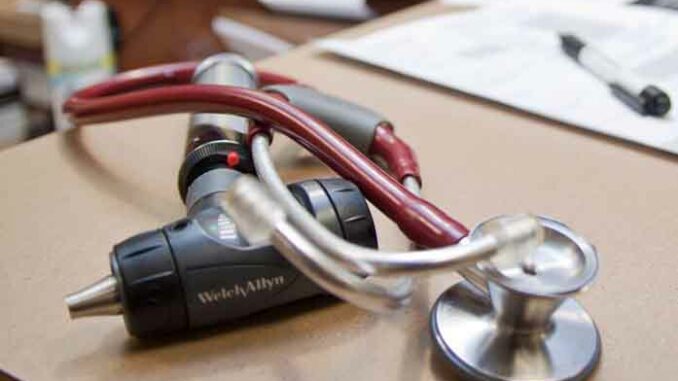
The American Medical Association (AMA) cannot claim to be the single voice of all physicians, since only 15 to 18 percent of doctors in the United States are paying members, writes Marilyn Singleton, M.D., J.D ., in the winter issue of the Journal of American Physicians and Surgeons . “Despite its Code of Medical Ethics, the AMA’s principles change with the political winds,” she writes, and “the Oath of Hippocrates, not the AMA and its progeny, remains the guiding principle of medicine.”
Dr. Singleton is a past president of the Association of American Physicians and Surgeons (AAPS).
A black physician herself, she is well aware of the past racist sins of the AMA. “As far back as 1847, the AMA supported the exclusion of black physicians from medical societies and disparaged the abilities of black and female physicians.” However, the solution is not “86 pages of self-flagellation” in its Equity Strategic Plan .
“Hippocrates would approve if ‘DEI’ [Diversity, Equity, and Inclusion] represented dignity, equality, and integrity,” she writes.
During the COVID-19 pandemic, “the AMA has done little to scientifically address the many questions that have arisen,” Dr. Singleton states, despite Principle #5 of the AMA’s Principles of Medical Ethics, which commands physicians to make relevant information available.
She discusses the PCR test, risk stratification, statistics on hospitalizations and deaths, natural immunity, the definition of “vaccine,” compelled vaccinations, “off-label” medications, and the COVID double standard.
“The American Medical Association is far from an organization of creative, critical thinkers who provide us with non-political, honest, and scientific discussion,” Singleton argues. “The AMA comes across as a government mouthpiece.”
“Physicians true to their Oath of Hippocrates will continue to advocate for a culture of respect for all human life. In our world of changing cultural norms, Hippocratic medical ethics, centered on the sanctity of the patient-physician relationship, is immutable and should suffice,” concluded Singleton.
The Oath Of Hippocrates:
I swear to fulfill, to the best of my ability and judgment, this covenant:
I will respect the hard-won scientific gains of those physicians in whose steps I walk, and gladly share such knowledge as is mine with those who are to follow.
I will apply, for the benefit of the sick, all measures [that] are required, avoiding those twin traps of overtreatment and therapeutic nihilism.
I will remember that there is art to medicine as well as science, and that warmth, sympathy, and understanding may outweigh the surgeon’s knife or the chemist’s drug.
I will not be ashamed to say “I know not”, nor will I fail to call in my colleagues when the skills of another are needed for a patient’s recovery.
I will respect the privacy of my patients, for their problems are not disclosed to me that the world may know. Most especially must I tread with care in matters of life and death. If it is given me to save a life, all thanks. But it may also be within my power to take a life; this awesome responsibility must be faced with great humbleness and awareness of my own frailty. Above all, I must not play at God.
I will remember that I do not treat a fever chart, a cancerous growth, but a sick human being, whose illness may affect the person’s family and economic stability. My responsibility includes these related problems, if I am to care adequately for the sick.
I will prevent disease whenever I can, for prevention is preferable to cure.
I will remember that I remain a member of society, with special obligations to all my fellow human beings, those sound of mind and body as well as the infirm.
If I do not violate this oath, may I enjoy life and art, respected while I live and remembered with affection thereafter. May I always act so as to preserve the finest traditions of my calling and may I long experience the joy of healing those who seek my help.
